Informed or Just Opinionated?: Milken Students Weigh In On How Informed They Are
There are many ways for students to stay informed beyond just reading the newspaper or watching TV news.
When the House Committee investigating the January 6 Insurrection at the Capitol met for its second public hearing, I had just finished up my math final and was driving to a friend’s house for the afternoon. I got into the car and switched the radio to 89.9 FM, KCRW. While I had never voluntarily listened to NPR before, I was told that these dramatic and interesting hearings were worth listening to. 45 minutes into the hearing, I arrived at my friend’s house, but I hesitated to get out of the car. I did not want to stop listening. Why did I, a non-voting 16-year-old who was almost finished with her junior year, want to listen to a hearing being conducted over 2,000 miles away, that used legal jargon that I didn’t understand and referenced people that I wasn’t familiar with?
Besides the soap-opera appeal of the hearings, I wanted to be informed. I decided that the headlines on the New York Times Instagram were not enough, and I needed to put more effort into seeking out information. Throughout the summer, I looked forward to the next public hearings, having them automatically downloaded on Apple Podcasts, and going on walks around my neighborhood just so that I could listen to them. As I listened to the January 6th hearings, I became more interested in what is going on in politics. I started listening to NPR Up First, a short podcast that explains three top stories every day. It brings in experts and international correspondents, and it is a concise way to hear the news every day. At the beginning of the school year, I decided to start listening to Up First every morning while I get ready for school. While this might seem like a lot for other students, it is only 15 minutes out of the entire day, and I have really appreciated feeling informed. I wondered what being informed really means. I also wanted to know if my daily routine is really that unusual for other people my age, specifically Milken students.
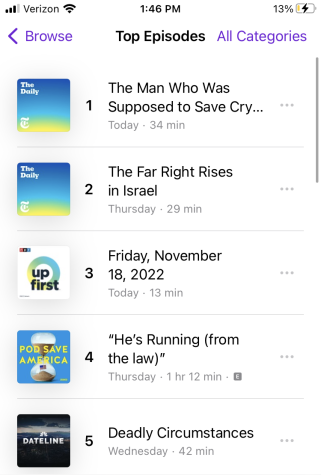
Milken students are known for voicing strong political opinions, whether it be on social media, in class, or in the hallways. According to an article from The Roar published in January 2021, 40.8% of 238 students and faculty polled identified as Democrats, and 39.5% identified as Republicans. Because of this almost even split between party affiliations, there is a wide range of beliefs and opinions on Milken’s campus. But where do those opinions come from? Some students cite social media as their main source of information, some use news websites, and some just express what they hear at the dinner table. Even though they may be opinionated, are Milken students informed?
According to Oxford Learner’s Dictionary, being informed means, “Having or showing a lot of knowledge about a particular subject or situation.” While the definition of informed refers to many situations, many people see being informed as having to do with politics and news. However, the concept of being informed is completely subjective. It is hard to measure being informed, and it varies from person to person.
For sophomore Yoni Becker ‘25, being informed means “knowing what’s going on in the world around you and how it directly affects your life.” Becker particularly gravitates toward stories relating to Ukraine, Midterm elections, and Biden’s new policies. He enjoys listening to the news via podcasts like Pod Save America to get his information. Podcasts are an appealing option for many because they are usually free and they can be listened to on the go. Beyond just politics and news, Becker also considers himself informed about sports. While many Milken students do not follow what is going on in the news, there are many who are knowledgeable about sports and pop culture. To some, this makes Milken students more informed.
Becker believes that Milken students are not as informed as they should be, especially about current events in politics and government. Becker believes that “most Milken students get their news from their parents or from their friends,” rather than by doing their own research. In conversations, Becker finds that students often get their facts mixed up. “I see problems with people saying one thing that directly contradicts something else,” he says. Becker believes that Milken students have a responsibility to be more informed, even though most of them are not yet 18.
“I think not only should you be informed, but you can also inform your parents,” Becker says, adding that even though the news cycle can be upsetting, “you have to keep your foot on the gas, because being informed means that you’ll make better voting decisions when you’re older.”
While Becker considers himself to be informed, senior Lior Berrin ‘23 does not think of himself as informed. To him, being informed means knowing what is going on in politics and in our country. He finds it difficult to feel informed because there are so many complicated details and someone will always know more than he does. Because of the amount of political division in the United States, he also finds that political discussions can be toxic. “It feels like there’s always this contest of who knows more and who’s able to cite facts to disprove you,” Berrin said.
He also explains that “the environment around those conversations is not inviting [or] welcoming for people to share their ideas comfortably.” Because he believes that political conversations can be harmful, Berrin doesn’t mind being less informed, and sometimes chooses to be less informed. Unlike Becker, Berrin does not stay updated on general news. However, for topics that are interesting to him, he puts in the research. For example, when the Supreme Court overturned Roe v. Wade in June, he did his own research by looking up articles.
He does his own research on both sides of a topic rather than just reading articles that affirm his beliefs. Berrin believes that a lot of the time, conversations are limited because “a political topic is presented as having one truth and only one possible way to look at it, and anyone who disagrees with that one way of looking at it is wrong,” Berrin said. In order to fully understand what is going on, he believes that it is integral to hear multiple opinions.
While many young people are able to affirm their beliefs on social media, Berrin does not engage with social media to stay informed. However, he does acknowledge that social media is an important way to see how teens feel about what is going on in the world. He does not see that perspective in the news, so social media is often the best option. Even though he recognizes the value of social media, the main way that he consumes news is by reading the Los Angeles Times on Shabbat. He reads about local news, especially stories about California.
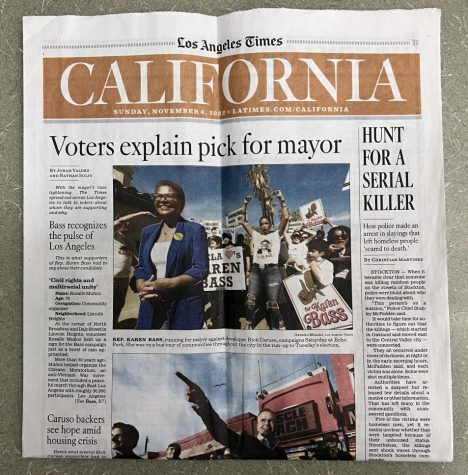
By focusing on local stories, he is able to steer clear of controversial issues that frustrate him. Berrin does not like how polarized people are. He believes that many issues have become partisan when they don’t need to be. He explained that when one side supports something, the other side often opposes it instinctively, leading to polarization that harms people. Berrin believes that people care too much about politics and treat it like a game. However, he clarifies that topics or policies that affect certain people and relate to their identities are important.
When asked about the benefit of being people who are informed about a wide range of topics, Berrin said, “I think it’s important to have things that you care about and know about, and that doesn’t necessarily have to [be] politics.”
Hearing multiple perspectives seems to be a similarity in how many Milken students stay informed. Coby Isaacson ‘23 believes that being informed means taking the news from multiple sources and being able to understand the biases that affect how journalists shape stories. He also believes that less conventional sources for teens, like books on political theory, help people stay informed by providing a deeper understanding of what things mean and where they come from. Isaacson especially recommends America in Retreat by Bret Stephens and The Korean War by Bruce Comings. There are countless books about politics on the market, but most young people tend to gravitate towards quicker, easier sources of information, like social media and quick videos. This may be because teens are already addicted to social media. Teens who are addicted to books on political theory are few and far between. Social media is already in people’s pockets and social media news is usually easy to read and engaging. While Isaacson believes that people tend to be too reliant on social media for news, he acknowledges that social media is necessary to be informed, and he actually gets about 80% of his news from social media. However, Isaacson feels most informed when listening to podcasts. He even listens to podcasts with hosts that he doesn’t agree with, simply for the purpose of learning about different political beliefs. For example, Isaacson occasionally listens to Tim Pool’s Podcast, Timcast IRL, a right-wing populist podcast. Podcasts seem to be a very popular way to get news, and they seem to be more popular for teens than reading publications. Isaacson rarely reads news publications, but when he does, he reads The Economist, The Atlantic, and The Wall Street Journal.
Isaacson typically follows political news, but he has distanced himself slightly from researching a wide range of political topics. Instead, he has been most interested in stories that are relevant to the upcoming chapter in his life: college. Stories about affirmative action, the cost of college, and student debt catch his eye among the often overwhelming amount of headlines and stories. He finds that controversial stories, like stories on affirmative action, draw him in. As he has distanced himself from political news, he has become more interested in learning about nutrition and how our food is made. “I’m really interested in the way our food is grown, processed, and how it’s kind of corrupt in the way they use pesticides and chemicals that aren’t good for humans, because we’re in an industrialized society.”
As someone who can’t yet vote, Isaacson thinks that it’s very important to read political literature, like his current book, Discrimination and Disparities by Thomas Sowell. “Learning U.S. history in depth and learning the evolution of political parties is extremely important in understanding how power and government are used,” Isaacson said. He believes that many Americans don’t take enough time to learn about what the consequences of their votes may be and they instead focus on the short-term benefits.
In terms of students at Milken, “I think we get a really good education, [but] I feel that most people don’t care. They have very strong opinions on subjects that they don’t really do much research on,” Isaacson explained. Like Becker, he also believes that many students just repeat what their parents say without doing enough personal reflection and research.
People should do less virtue-signaling and more learning.
— Coby Isaacson
Many students aren’t informed because they do not think that their voice carries very much weight. Isaacson believes that one of the worst things for people to think is that their vote does not matter and that they do not have an influence. “It’s very important to be involved because that’s how we exercise our rights,” he says.
Isaacson sees a pattern in young people treating politics like a trend. People often use buzzwords to state a strong opinion or to virtue-signal. “People should do less virtue-signaling and more learning,” Isaacson said.
Similarly to Isaacson, Julia Nahmod ‘24 believes that to be informed, people have to listen to multiple sides of an issue. She believes that uninformed people do not have the urge to understand the other side, which restricts how informed they can really be.
Nahmod recognizes how inaccessible learning about the news can be. “The news is not as catered to the masses as it should be,” she explained. She gets her news mostly from The New York Times, NPR, and CNN’s 5 Things daily newsletter. She frequently watches Channel 5 with Andrew Callaghan on YouTube, which gives voice to various people across the political spectrum. Youtube channels like this are accessible ways for people to keep in touch with current events, Nahmod believes. Although many students want to be informed, it seems like a large task that requires hours of research and consistent effort. Many teenagers feel like they’re too busy, and since they can’t vote anyway, it doesn’t really matter.
Nahmod, however, believes that it is important to be informed as a teenager who can’t yet vote because political decisions do affect young people. It is also important to have an understanding of politics now so that teenagers will be better equipped to make educated decisions later. “If you understand the people who are in the elections now, you’ll understand the people who are in the elections later,” Nahmod said.
Lila Shimansky ‘26, a freshman at Milken, defines being informed as “knowing about the events that are going on, first inside your bubble, but also outside of your bubble.” She feels informed about what’s going on inside her bubble, but it is hard for her to look past the people around her and what affects them in order to be more informed. Rather than reading traditional news articles, she typically stays informed through conversations with friends at school and in discussions with family. Following what is going on locally, like how Berrin reads the California section of the LA Times, is one way to start becoming more informed. By starting small, like focusing on one topic or election, people can find out what they want to go more in-depth about.
Shimansky enjoys it when traditional news sources make content that explains the news in a way that is catered to a younger audience, like the Washington Post’s TikTok. “It’s more convenient to have information coming through a source that you look at daily to make sure that you stay informed consistently,” Shimansky explained, referencing how she already scrolls through TikTok every day. When a news story is just another 15-second TikTok, being informed does not seem like a massive endeavor.
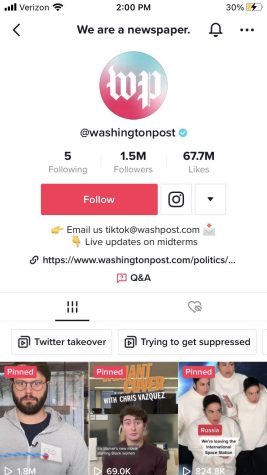
As a freshman, Shimansky does not read the news very often, but she anticipates being more informed as she gets older. She believes that as people grow up, there is less of an effort to protect our innocence. “As you get more access and knowledge about what’s going on in the world, you hear more about the bad and not just the good,” she said.
However, as a young person, she believes that she has a responsibility to be informed in order to spread awareness about certain topics, and so that she will be educated when she is old enough to vote.
In a time when politics and current events are heavily discussed, Milken students can choose to learn about what is going on or tune it out. Many students choose to tune it out. Whether it is because they believe that ignorance is bliss, or because it seems too complicated to even begin to understand, it is important for students to acknowledge whether or not they are informed. After listening to the January 6th hearings, I chose to dive into current events head-first. I still, however, acknowledge that I do not know enough about so many topics in the news and in history, so my strategy right now is just to listen carefully.
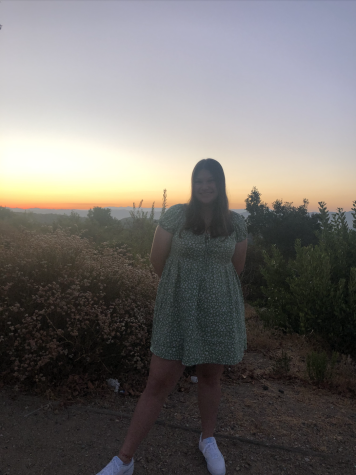
Miriam Herstein, The Roar’s Deputy Editor, is a senior at Milken who has been in Journalism for two years. While she enjoys writing about student clubs,...



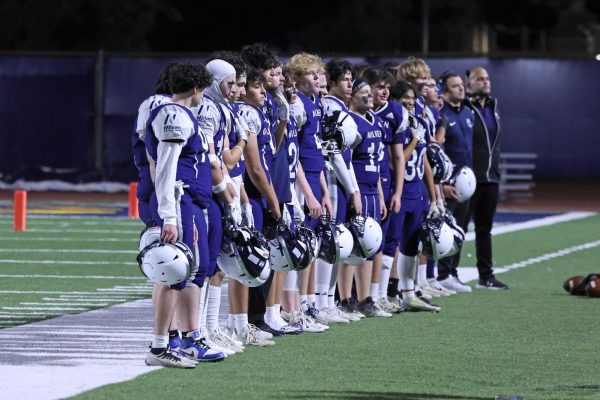
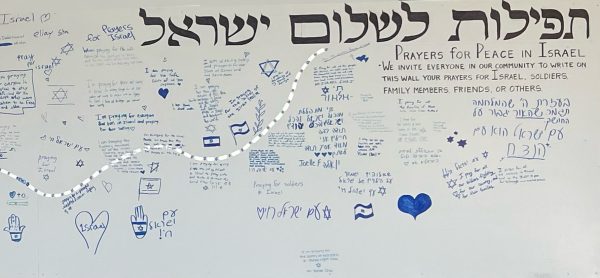

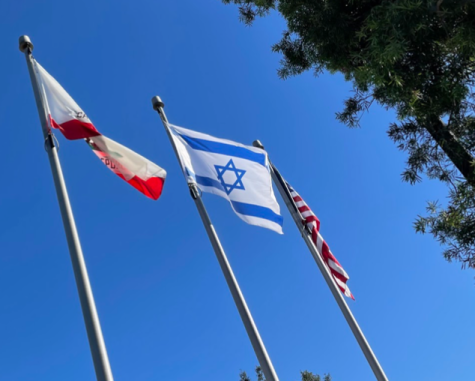


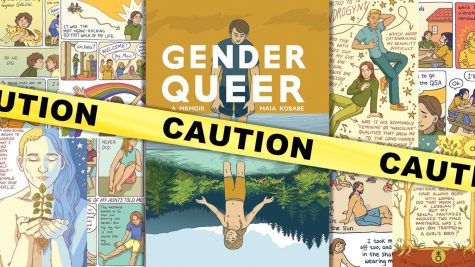
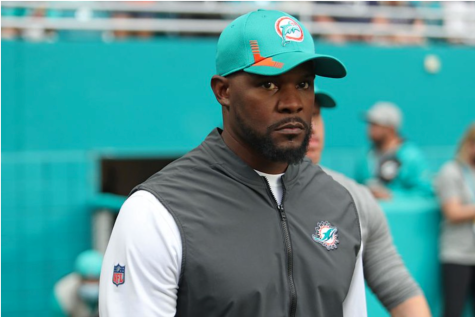

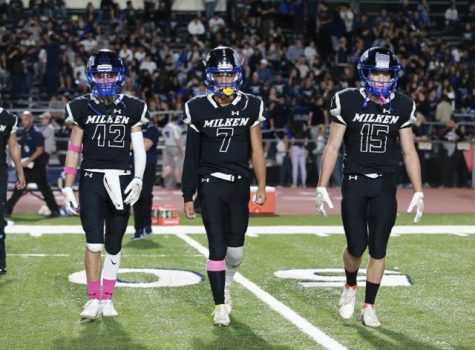
Brooke Abselet • Nov 28, 2022 at 8:27 pm
this article is incredible
great job miriam <33